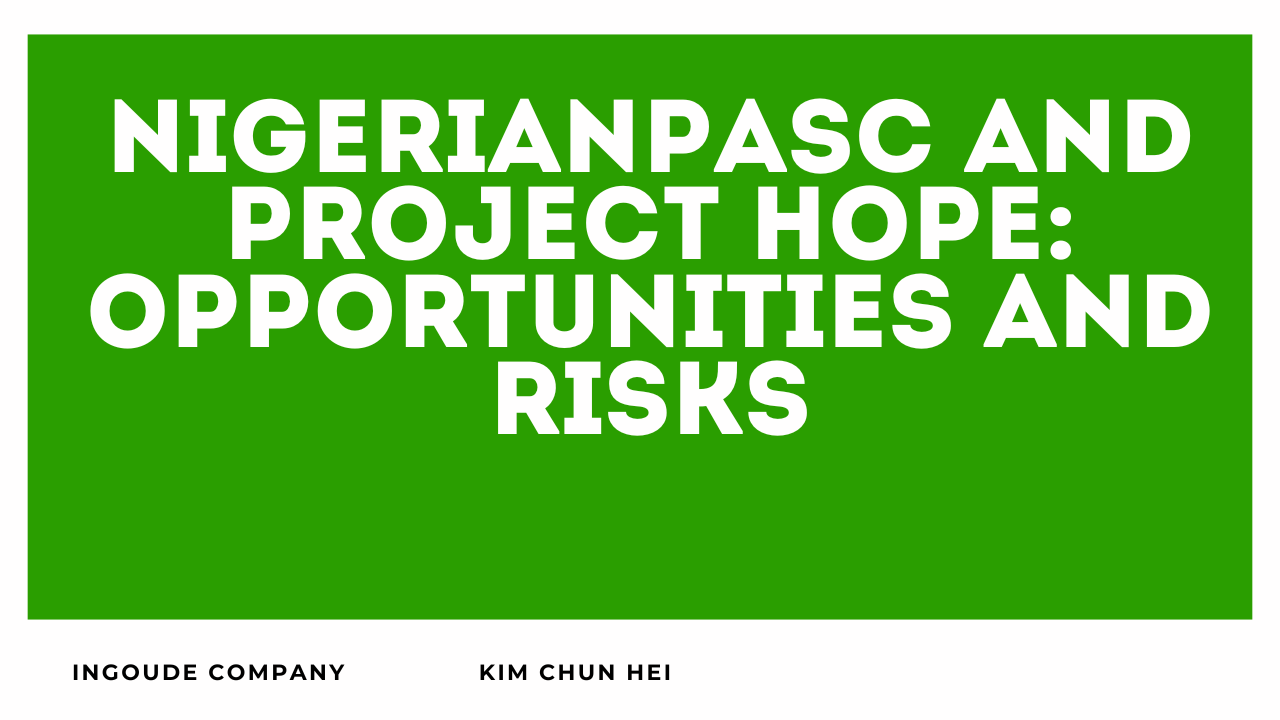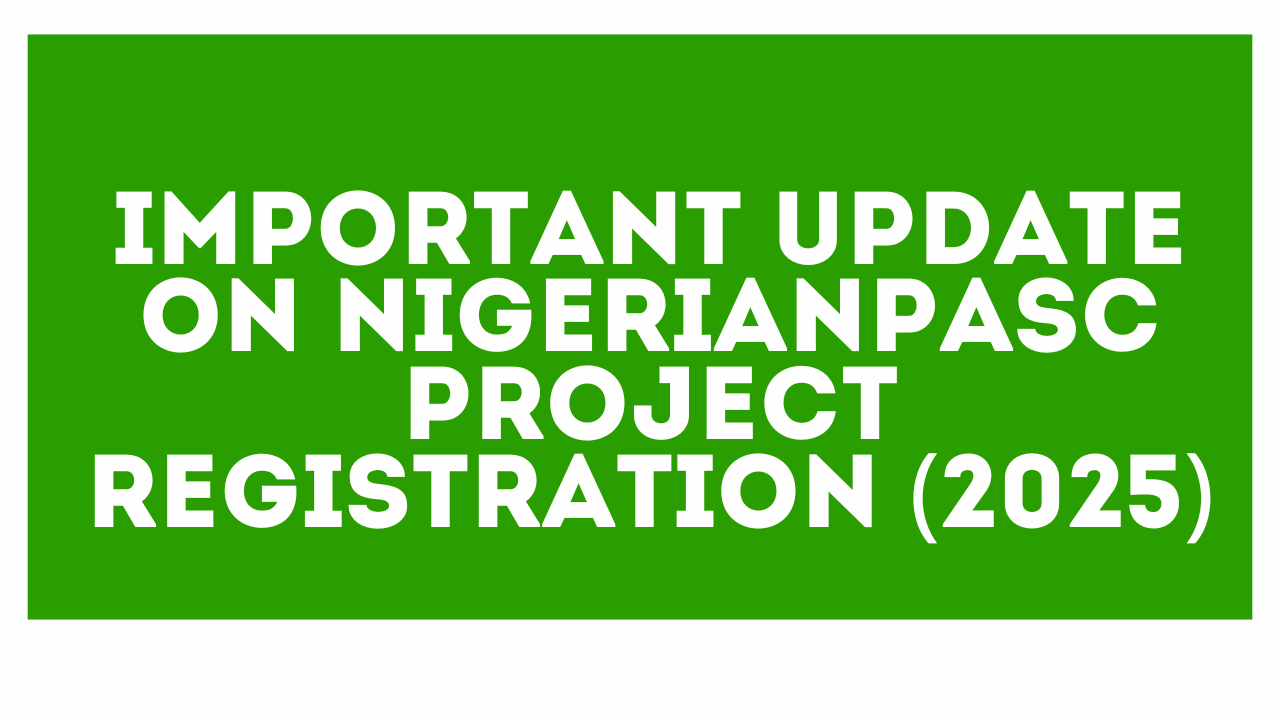Introduction to NigerianPASC and Project Hope
Background of NigerianPASC
NigerianPASC stands for Nigerian Professional Association for Social Change. This organization aims to drive social development across Nigeria.
It serves as a platform for professionals focused on improving societal conditions.
NigerianPASC promotes collaboration among various stakeholders.
Furthermore, it provides resources and support to empower communities.
Overview of Project Hope
Project Hope is an initiative launched by NigerianPASC.
This project seeks to address pressing social issues in Nigeria.
It aims to improve access to education and healthcare for underserved populations.
Additionally, Project Hope emphasizes youth empowerment through skill development.
It fosters partnerships between local communities and government agencies.
The project also focuses on enhancing economic opportunities for vulnerable groups.
Objectives of NigerianPASC and Project Hope
The primary goal of NigerianPASC is to facilitate social change.
It aims to unite professionals dedicated to improving community well-being.
In conjunction, Project Hope focuses on practical solutions.
It seeks measurable impacts in education and healthcare sectors.
Both initiatives strive to develop sustainable programs that last.
Significance of Collaboration
NigerianPASC emphasizes the importance of partnerships for success.
Collaboration with local organizations enhances impact scope.
International partnerships provide additional resources and expertise.
Moreover, engaging communities promotes ownership of initiatives.
Analysis of Opportunities Presented by NigerianPASC for Youth Empowerment
Creating Employment Opportunities
NigerianPASC offers numerous job prospects for young people.
Through various projects, the initiative generates employment in diverse sectors.
This includes agriculture, technology, and healthcare.
Moreover, these projects encourage youth entrepreneurship.
Young innovators can develop their own businesses under this framework.
Enhancing Skill Development
Young people gain access to valuable training programs.
NigerianPASC emphasizes skills that are in high demand.
Participants can enhance their expertise in areas like coding and digital marketing.
This skill acquisition boosts their employability significantly.
Fostering Community Engagement
NigerianPASC encourages youth to actively participate in their communities.
This involvement enhances leadership skills and civic responsibility.
Furthermore, community projects allow youth to express their ideas.
This engagement helps in building a stronger sense of belonging.
Promoting Technological Access
The initiative prioritizes access to modern technology.
By providing resources, it equips youth with relevant tools.
Technology training opens doors to various career paths.
This exposure is crucial in today’s digital economy.
Encouraging Collaboration
NigerianPASC fosters partnerships between youth and organizations.
Collaborative efforts lead to shared knowledge and resources.
These connections can open additional funding opportunities for projects.
Moreover, they enhance networking among young professionals.
Supporting Mental Health Initiatives
NigerianPASC promotes awareness of mental health issues.
Youth empowerment includes addressing mental health challenges.
Support programs aim to create safe spaces for open discussions.
This focus is essential for overall well-being and productivity.
Risk Assessment: Evaluating the Challenges Faced by Project Hope in Implementation
Identifying Key Challenges
Project Hope encounters various challenges during its implementation phase.
Initially, funding shortages limit the reach of the program.
Additionally, political instability can hinder operations in affected areas.
Furthermore, logistical issues often disrupt timely resource distribution.
Evaluating External Risks
External risks can significantly impact Project Hope’s success.
For instance, economic downturns may lead to reduced donations.
Moreover, unforeseen natural disasters can disrupt planned activities.
In addition, health crises, such as pandemics, pose substantial risks.
Assessing Internal Challenges
Internal challenges also need close examination.
Staff turnover can lead to a lack of continuity in leadership.
Inexperienced personnel might lack essential skills for effective implementation.
Moreover, inadequate training can affect staff performance significantly.
Mitigating Risks
Addressing identified risks is crucial for project success.
To combat funding shortages, diversifying revenue sources is essential.
Building partnerships with local organizations can enhance operational stability.
Additionally, implementing robust training programs will improve staff skills.
Continuous Monitoring and Evaluation
Continuous monitoring helps in identifying new risks promptly.
Regular evaluations of program effectiveness ensure timely adjustments.
Lastly, establishing feedback channels will promote stakeholder involvement.
Strategic Partnerships
Understanding Collaborations
Collaborations play a crucial role in enhancing NigerianPASC and Project Hope.
They foster innovation and improve resource utilization.
Strategic partnerships enable sharing of expertise and knowledge.
Organizations often combine their strengths for greater impact.
Such alliances are essential for addressing complex challenges.
Benefits of Partnerships
Partnerships can significantly increase funding opportunities.
They allow organizations to leverage each other’s networks.
Working together enhances efficiency and reduces duplication of efforts.
Moreover, collaborations create platforms for knowledge exchange.
This exchange promotes learning and fosters best practices.
Potential Challenges
Despite the benefits, partnerships can present challenges.
Aligning goals and strategies may sometimes be difficult.
Differing organizational cultures can lead to misunderstandings.
Additionally, sharing responsibilities may create conflicts.
It is crucial to establish clear communication channels upfront.
Examples of Successful Collaborations
NigerianPASC has partnered with local NGOs to enhance community outreach.
They work together on health awareness programs across various regions.
Project Hope collaborates with international organizations for training initiatives.
This partnership has successfully educated thousands of individuals.
Furthermore, sharing resources has improved operational effectiveness.
Future Prospects
Long-term collaborations can yield sustainable benefits for both entities.
Innovative projects can emerge from successful partnerships.
Strategic alliances can adapt to meet future challenges effectively.
Moreover, there is potential to expand collaborations further.
The future looks promising with continued strategic partnerships.
Technology Integration: Leveraging EduTech in NigerianPASC and Project Hope
Introduction to EduTech in Nigeria
Nigeria’s educational landscape is undergoing significant transformation.
EduTech initiatives play a crucial role in this evolution.
They introduce innovative solutions for educational challenges.
Moreover, these technologies enhance learning opportunities for students.
Key Technologies in Use
Several technologies empower students and educators alike.
- Mobile learning applications facilitate access to educational resources.
- Online learning platforms provide diverse course offerings.
- Interactive tools engage students in the learning process.
- Cloud-based services enable collaboration among educators.
Benefits of Technology Integration
Integrating technology improves educational outcomes in various ways.
Firstly, it enhances student engagement and participation.
Secondly, personalized learning experiences cater to individual student needs.
Additionally, technology fosters critical thinking and creativity.
Finally, it prepares students for a tech-driven workforce.
Challenges and Risks
Despite its benefits, technology integration presents challenges.
Access to reliable internet is a persistent issue.
Furthermore, there is a need for adequate training for educators.
Moreover, not all students have equal access to devices.
Finally, concerns around data privacy and security must be addressed.
Future Prospects
The future of technology integration in education looks promising.
Collaboration between government and private sectors can enhance these efforts.
Furthermore, investment in infrastructure is essential for success.
Additionally, creating inclusive policies will ensure equitable access.
Lastly, continuous evaluation will help adapt to changing needs.
Case Studies: Successful Outcomes from NigerianPASC and Project Hope Initiatives
NigerianPASC Initiative
NigerianPASC has made significant strides in community development.
Many residents now access vital resources and services.
For instance, community members have reported improved healthcare access.
Moreover, local education programs have flourished.
Students benefit from scholarships and educational materials.
Additionally, vocational training initiatives have empowered local youth.
These programs enable young people to gain practical skills.
Success stories from these initiatives inspire further investment.
Project Hope Outcomes
Project Hope has effectively addressed health challenges in Nigeria.
For example, maternal health rates have improved significantly.
Training programs for local healthcare workers have been implemented.
Moreover, the initiative has enhanced community awareness about health issues.
Workshops focus on nutrition, hygiene, and disease prevention.
Communities now report lower disease incidence due to increased awareness.
Furthermore, partnerships with local organizations strengthen sustainability.
These collaborations ensure resources are used effectively and efficiently.
Key Takeaways
Both NigerianPASC and Project Hope showcase the power of community involvement.
Successful outcomes stem from local participation and investment.
Furthermore, ongoing evaluation of these programs is essential.
It helps identify areas for improvement and expansion.
Ultimately, these initiatives provide valuable lessons for future projects.
Investing in community-driven solutions fosters resilience and growth.
Community Engagement: The Role of Local Stakeholders in Shaping the Projects
Understanding Local Stakeholders
Local stakeholders include community members, leaders, and organizations.
Their input and engagement are vital for project success.
They bring valuable insights that reflect the community’s needs.
Furthermore, their participation fosters a sense of ownership.
Benefits of Engagement
Engaging local stakeholders enhances project relevance.
It helps identify priorities that resonate with the community.
Additionally, local engagement promotes transparency throughout the project.
This transparency builds trust among community members and project teams.
Challenges in Engagement
Despite its benefits, community engagement can face obstacles.
In some cases, misunderstandings can arise between stakeholders and project managers.
Additionally, differing interests may lead to conflicts over priorities.
Addressing these challenges requires active communication and mediation.
Strategies for Effective Engagement
Establishing clear communication channels is essential for success.
Regular meetings and updates keep stakeholders informed.
Moreover, involving stakeholders from the planning stages is crucial.
This inclusion fosters a sense of partnership and shared goals.
Training local leaders can also empower communities to take initiative.
Case Studies of Successful Engagement
Many projects have thrived through effective local engagement.
For example, the “Green Lagos” initiative involved residents in decision-making.
This approach led to tailored solutions that addressed local environmental issues.
Similarly, Project Hope in rural areas has utilized community feedback.
As a result, it has successfully adapted programs to meet specific needs.
Future Outlook: Sustainability and Long-term Goals of NigerianPASC and Project Hope
Commitment to Sustainable Practices
NigerianPASC emphasizes sustainable agricultural practices.
This commitment helps mitigate environmental impacts.
Furthermore, it encourages biodiversity within local ecosystems.
Through sustainable approaches, Project Hope aims to improve food security.
They prioritize practices that conserve water and soil resources.
Long-term Community Engagement
Community involvement is crucial for project success.
NigerianPASC plans to engage local farmers continuously.
This engagement fosters relationships built on trust and transparency.
Moreover, it empowers communities to participate in decision-making.
Project Hope envisions long-term collaborations with local organizations.
Economic Resilience and Growth
NigerianPASC aims to promote economic resilience through training.
Farmers receive skills that enhance productivity and profitability.
Additionally, they focus on accessing markets effectively.
Project Hope seeks to create job opportunities in rural areas.
This fosters economic growth and reduces poverty levels.
Adaptation to Climate Change
Climate change presents significant challenges to agriculture.
NigerianPASC works on developing adaptive strategies for farmers.
They provide resources that help mitigate climate-related impacts.
Project Hope emphasizes the importance of climate-smart practices.
This ensures that farming remains viable in changing conditions.
Monitoring Progress and Impact
Regular monitoring is essential for evaluating project success.
NigerianPASC utilizes data to track agricultural productivity.
They assess environmental impacts regularly as well.
Likewise, Project Hope measures social and economic benefits.
This approach ensures that goals remain aligned with community needs.






